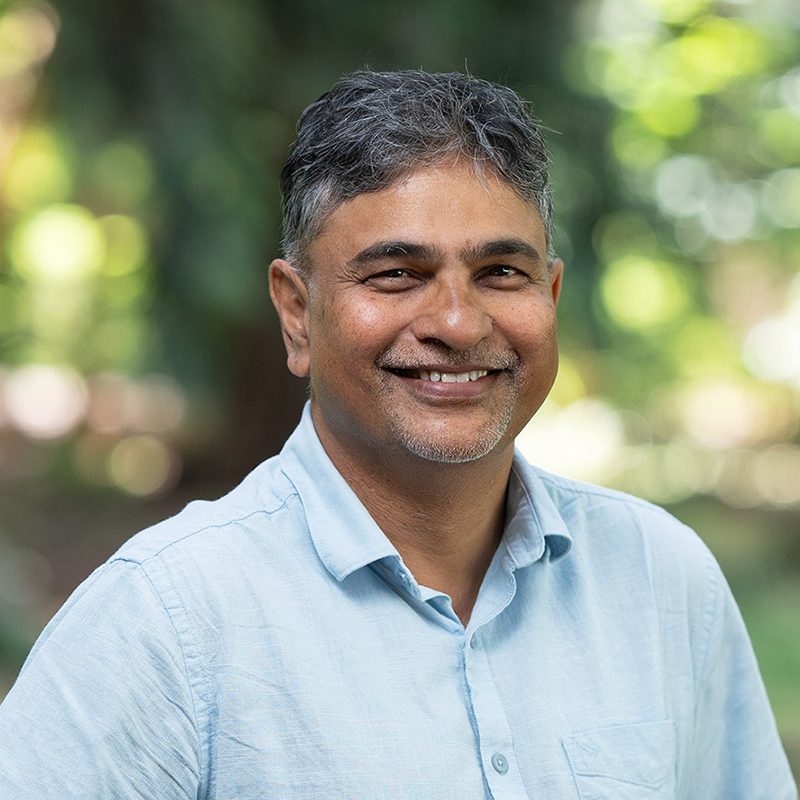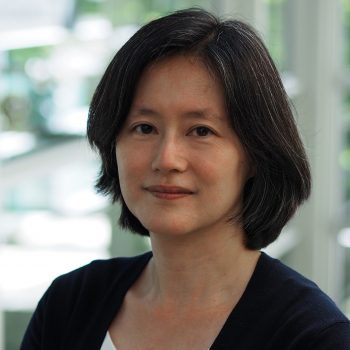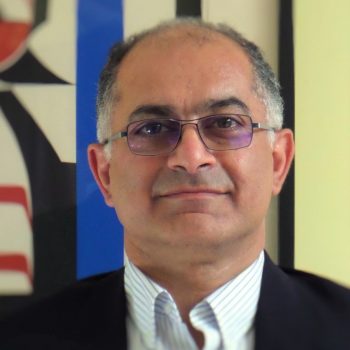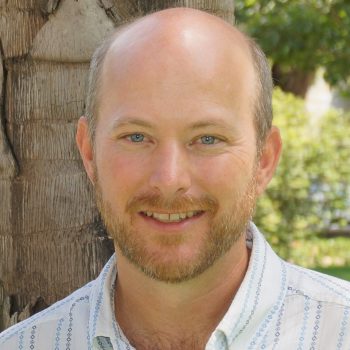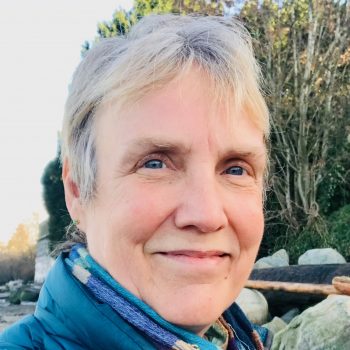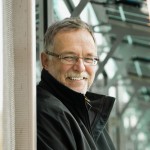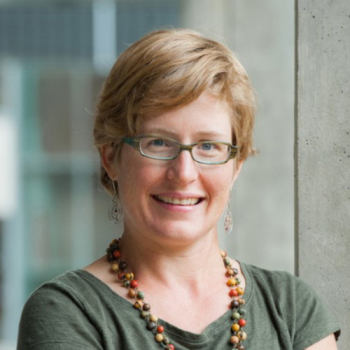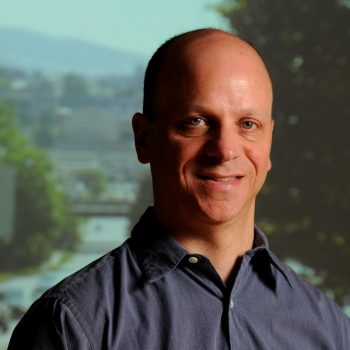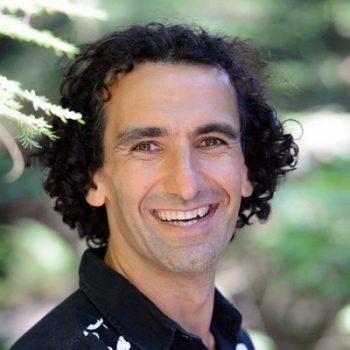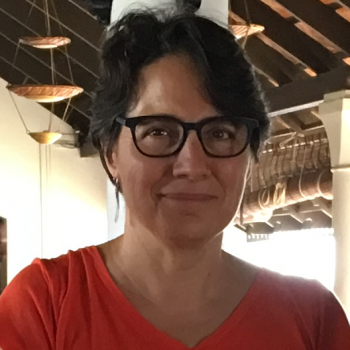
Terre Satterfield
Professor of Culture, Risk and the Environment, IRES
Contact Details
AERL Room 417
2202 Main Mall
The University of British Columbia
Vancouver, BC V6T 1Z4
Canada
terre.satterfield[at]ires.ubc.ca
Google scholar:
https://scholar.google.com/citations?user=1nrd2msAAAAJ&hl=en&oi=ao
Research Interests
Bio
Terre’s work has been at the forefront of the environmental social sciences, and includes pioneering interdisciplinary work on questions of the value, culture, and perceived risks of environmental change. Three fundamental questions drive her work: What do people value environmentally and culturally and why? What changes and impacts (including technological interventions in nature) do people perceive as risky and why? How and when are conservation programs and protected areas culturally consequential for local and Indigenous communities? Methodologically speaking, Terre’s work with over 30 PhD, and 10 Masters students, has been particularly preoccupied with addressing the integration of meaning and measurement across these three topical areas.
Her body of scholarship includes 3 books, multiple book chapters, and more than 120 refereed articles in top-quality, broad audience journals including: Nature, Proceedings of the National Academy of Sciences, Global Environmental Change, Environmental Science and Technology, Ecological Economics, Climatic Change, Annual Reviews, Conservation Letters, Conservation Biology, Biological Conservation, Energy Research and Social Sciences, Risk Analysis, Organization and the Environment, Environmental Science and Policy, Ecology and Society, World Development, among others.
Recent work with students and colleagues
Click on each question below to view relevant papers.
What do people value environmentally and culturally: how and why?
Robin Gregory, Philip Halteman, Nicole Kaechele, Terre Satterfield. Methods for assessing social and cultural losses. Science 381,478-481(2023).
Erika R. Gavenus, Rachelle Beveridge, Terre Satterfield. Restorative diets: a methodological exploration comparing historical and contemporary salmon harvest rates. Ecology and Society. 2023.
Eyster, Harold N., Terre Satterfield, and Kai MA Chan. Empirical examples demonstrate how relational thinking might enrich science and practice. People and Nature 5.2 (2023): 455-469.
Persaud, Anthony W., Harry W. Nelson, and Terre Satterfield. “Reconciling Institutional Logics Within First Nations Forestry-Based Social Enterprises.” Organization & Environment 35, no. 3 (September 1, 2022): 394–413.
Klain, Sarah, Terre Satterfield, Kai M. A. Chan, and Kreg Lindberg. “Octopus’s Garden under the Blade: Boosting Biodiversity Increases Willingness to Pay for Offshore Wind in the United States.” Energy Research & Social Science 69 (November 1, 2020): 101744.
Chapman, Mollie, Terre Satterfield, Hannah Wittman, and Kai M. A. Chan. “A Payment by Any Other Name: Is Costa Rica’s PES a Payment for Services or a Support for Stewards?” World Development 129 (May 1, 2020): 104900.
Chapman, Mollie, Terre Satterfield, and Kai M. A. Chan. “How Value Conflicts Infected the Science of Riparian Restoration for Endangered Salmon Habitat in America’s Pacific Northwest: Lessons for the Application of Conservation Science to Policy.” Biological Conservation 244 (April 1, 2020): 108508.
Gregory, Robin, Philip Halteman, Nicole Kaechele, Jana Kotaska, and Terre Satterfield. “Compensating Indigenous Social and Cultural Losses: A Community-Based Multiple-Attribute Approach.” Ecology and Society 25, no. 4 (2020): art4.
Wilson, Nicole J., Leila M. Harris, Angie Joseph-Rear, Jody Beaumont, and Terre Satterfield. “Water Is Medicine: Reimagining Water Security through Tr’ondëk Hwëch’in Relationships to Treated and Traditional Water Sources in Yukon, Canada.” Water 11, no. 3 (March 2019): 624.
Satterfield, Terre, Mary Collins, and Barbara Harthorn. “Perceiving Resilience: Understanding People’s Intuitions about the Qualities of Air, Water, and Soil.” Ecology and Society 23, no. 4 (December 21, 2018).
Gould, Rachelle K., Sarah C. Klain, Nicole M. Ardoin, Terre Satterfield, Ulalia Woodside, Neil Hannahs, Gretchen C. Daily, and Kai M. Chan. “A protocol for eliciting nonmaterial values through a cultural ecosystem services frame.” Conservation Biology 29, no. 2 (2015): 575–86.
Levine, Jordan, Kai M. A. Chan, and Terre Satterfield. “From Rational Actor to Efficient Complexity Manager: Exorcising the Ghost of Homo Economicus with a Unified Synthesis of Cognition Research.” Ecological Economics 114, no. C (2015): 22–32.
What are the perceived risks of technological interventions in nature?
Satterfield, Terre, Sara Nawaz, and Miranda Boettcher. “Social Considerations and Best Practices for Engaging Publics on Ocean Alkalinity Enhancement.” State of the Planet Discussions, June 15, 2023, 1–39. https://doi.org/10.5194/sp-2023-3.
Nawaz, Sara, Guillaume Peterson St-Laurent, and Terre Satterfield. “Public Evaluations of Four Approaches to Ocean-Based Carbon Dioxide Removal.” Climate Policy 23, no. 3 (March 16, 2023): 379–94. https://doi.org/10.1080/14693062.2023.2179589.
Satterfield, Terre, Sara Nawaz, and Guillaume Peterson St-Laurent. “Exploring Public Acceptability of Direct Air Carbon Capture with Storage: Climate Urgency, Moral Hazards and Perceptions of the ‘Whole versus the Parts.’” Climatic Change 176, no. 2 (January 28, 2023): 14. https://doi.org/10.1007/s10584-023-03483-7.
Cooley, Sarah R., Sonja Klinsky, David R. Morrow, and Terre Satterfield. “Sociotechnical Considerations About Ocean Carbon Dioxide Removal.” Annual Review of Marine Science 15, no. 1 (2023): 41–66. https://doi.org/10.1146/annurev-marine-032122-113850.
Nawaz, Sara, and Terre Satterfield. “On the Nature of Naturalness? Theorizing ‘Nature’ for the Study of Public Perceptions of Novel Genomic Technologies in Agriculture and Conservation.” Environmental Science & Policy 136 (October 1, 2022): 291–303. https://doi.org/10.1016/j.envsci.2022.06.008.
Nawaz, Sara, and Terre Satterfield. “Climate Solution or Corporate Co-Optation? US and Canadian Publics’ Views on Agricultural Gene Editing.” PLoS ONE 17, no. 3 (March 21, 2022): e0265635. https://doi.org/10.1371/journal.pone.0265635.
Hagerman, Shannon, Terre Satterfield, Sara Nawaz, Guillaume Peterson St-Laurent, Robert Kozak, and Robin Gregory. “Social Comfort Zones for Transformative Conservation Decisions in a Changing Climate.” Conservation Biology 35, no. 6 (2021): 1932–43. https://doi.org/10.1111/cobi.13759.
Dieckmann, Nathan F., Robin Gregory, Terre Satterfield, Marcus Mayorga, and Paul Slovic. “Characterizing Public Perceptions of Social and Cultural Impacts in Policy Decisions.” Proceedings of the National Academy of Sciences 118, no. 24 (June 15, 2021): e2020491118. https://doi.org/10.1073/pnas.2020491118.
Nawaz, Sara, Terre Satterfield, and Shannon Hagerman. “From Seed to Sequence: Dematerialization and the Battle to (Re)Define Genetic Resources.” Global Environmental Change 68 (May 1, 2021): 102260. https://doi.org/10.1016/j.gloenvcha.2021.102260.
Findlater, Kieran M., Terre Satterfield, and Milind Kandlikar. “Farmers’ Risk-Based Decision Making Under Pervasive Uncertainty: Cognitive Thresholds and Hazy Hedging.” Risk Analysis 39, no. 8 (2019): 1755–70. https://doi.org/10.1111/risa.13290.
Findlater, Kieran M., Terre Satterfield, Milind Kandlikar, and Simon D. Donner. “Six Languages for a Risky Climate: How Farmers React to Weather and Climate Change.” Climatic Change 148, no. 4 (June 1, 2018): 451–65. https://doi.org/10.1007/s10584-018-2217-z.
Findlater, K. M., S. D. Donner, T. Satterfield, and M. Kandlikar. “Integration Anxiety: The Cognitive Isolation of Climate Change.” Global Environmental Change 50 (May 1, 2018): 178–89. https://doi.org/10.1016/j.gloenvcha.2018.02.010.
Klain, Sarah C., Terre Satterfield, Jim Sinner, Joanne I. Ellis, and Kai M. A. Chan. “Bird Killer, Industrial Intruder or Clean Energy? Perceiving Risks to Ecosystem Services Due to an Offshore Wind Farm.” Ecological Economics 143 (January 1, 2018): 111–29. https://doi.org/10.1016/j.ecolecon.2017.06.030.
Klain, Sarah C., Terre Satterfield, Suzanne MacDonald, Nicholas Battista, and Kai M. A. Chan. “Will Communities ‘Open-up’ to Offshore Wind? Lessons Learned from New England Islands in the United States.” Energy Research & Social Science 34 (December 1, 2017): 13–26. https://doi.org/10.1016/j.erss.2017.05.009.
When are conservation programs consequential for communities and why?
Jolly, Helina, Terre Satterfield, Milind Kandlikar, and TR Suma. “Locating Kadu in Adivasi Portrayals of Protected Forest Areas in Southern India.” World Development 173 (January 1, 2024): 106390. https://doi.org/10.1016/j.worlddev.2023.106390.
Chignell, Stephen M., and Terre Satterfield. “Seeing beyond the Frames We Inherit: A Challenge to Tenacious Conservation Narratives.” People and Nature n/a, no. n/a. November 28, 2023. https://doi.org/10.1002/pan3.10550.
Lim, Tee Wern, Arn Keeling, and Terre Satterfield. “‘We Thought It Would Last Forever’: The Social Scars and Legacy Effects of Mine Closure at Nanisivik, Canada’s First High Arctic Mine.” Labour / Le Travail 91 (May 25, 2023): 115–46. https://doi.org/10.52975/llt.2023v91.008.
Jolly, Helina, Terre Satterfield, Milind Kandlikar, and Suma Tr. “Indigenous Insights on Human–Wildlife Coexistence in Southern India.” Conservation Biology 36, no. 6 (2022): e13981. https://doi.org/10.1111/cobi.13981.
Gregory, Robin, Robert Kozak, Guillaume Peterson St-Laurent, Sara Nawaz, Terre Satterfield, and Shannon Hagerman. “Under Pressure: Conservation Choices and the Threat of Species Extinction.” Climatic Change 166, no. 1 (May 3, 2021): 2. https://doi.org/10.1007/s10584-021-03102-3.
Witter, Rebecca, and Terre Satterfield. “Rhino Poaching and the ‘Slow Violence’ of Conservation-Related Resettlement in Mozambique’s Limpopo National Park.” Geoforum 101 (May 1, 2019): 275–84. https://doi.org/10.1016/j.geoforum.2018.06.003.
Witter, Rebecca, and Terre Satterfield. “The Ebb and Flow of Indigenous Rights Recognitions in Conservation Policy.” Development and Change 50, no. 4 (2019): 1083–1108. https://doi.org/10.1111/dech.12456.
Wilson, Nicole J., Edda Mutter, Jody Inkster, and Terre Satterfield. “Community-Based Monitoring as the Practice of Indigenous Governance: A Case Study of Indigenous-Led Water Quality Monitoring in the Yukon River Basin.” Journal of Environmental Management 210 (March 15, 2018): 290–98. https://doi.org/10.1016/j.jenvman.2018.01.020.
Bennett, Nathan J., and Terre Satterfield. “Environmental Governance: A Practical Framework to Guide Design, Evaluation, and Analysis.” Conservation Letters 11, no. 6 (2018): e12600. https://doi.org/10.1111/conl.12600.
Bennett, Nathan James, Hugh Govan, and Terre Satterfield. “Ocean Grabbing.” Marine Policy 57 (July 1, 2015): 61–68. https://doi.org/10.1016/j.marpol.2015.03.026.
Supervision
Current Students
Erika Gavenus
Rapichan Phurisamban
Sarah-Louise Ruder (co-supervised with Hannah Wittman)
Stephen Chignell (co-supervised with Mark Johnson)
Glory Apantaku (co-supervised with Mark Harrison in SPPH)
Jessica Koski (co-supervised with David Boyd)
Nicole Kaechele
Tee Lim (co-supervise with Glen Coulthard, Political Science)
Previous Students (click to view)
Ph.D. Students/ Supervised or Co-Supervised
Daniela Kalikoski (co-supervised with Les Lavkulich)
David Brownstein (co-supervised with Graeme Wynn)
Joleen Timko (co-supervised with John Innes)
Virginia Gibson (co-supervsied with M. Scoble)
Maria du Monceau
Tihut Asfaw
Jamie Donatuto
Teresa Ryan (co-supervised with Ron Tropser)
Shannon Hagerman (co-supervised with Hadi Dowlatabadi)
Alyssa Joyce co-supervised with Tim McDaniels)
David Richard Boyd
Anton Pitts
Jana Kotaska
Julia Freeman (co-supervised with Milind Kandlikar)
Christian Beaudrie (co-supervised with Milind Kandlikar)
Jordan Levine (co-supervised with Kai Chan)
Jordan Tam (co-supervised with Kai Chan)
Maggie Low
Mollie Chapman (co-supervised with Kai Chan)
Kieran Findlater (co-supervised with Milind Kandlikar)
Jason Brown
Nicole Wilson
Jonathan Taggart (co-supervised with Kai Chan)
Megan Callahan
Johnnie Manson
Anthony Persaud
Helina Jolly
Sara Nawaz
Madison Stevens
Masters Students/Supervised
Bronwen Geddes
Lisa Ligouri
Yolanda Yim
Michael Zelmer
Andrea Streilein
Tee Lim (co-supervised with Frank Tester)
Megan Callahan
Johnnie Manson
Maery Kaplan-Hallam
Alida O’Connor
Adrian Semmelink
Hollis Andrews
Rae Cramer
Nayadeth Arriagada (co-supervised with David Boyd)
Patricia Angkiriwang
Allison Cutting (co-supervised with Rashid Sumaila)
Courses
ENVR 410 Energy, Environment and Society
ASIC 220 Introduction to Sustainability
RES 530 Science, Policy and Values in Risk and Resource Management Contexts
RES 507 Human and Technological Systems
RES 504 Survey Design in Interdisciplinary Environmental Research
